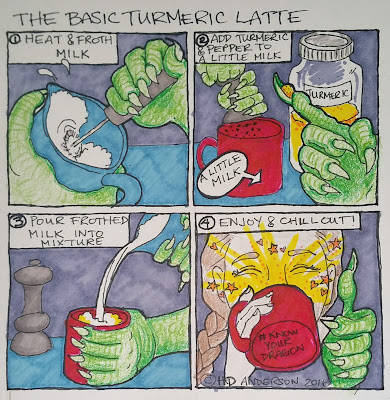When I think back to the time when things were just so murky in my mind, and my thoughts were limited between doom and gloom, if somebody told me that a state of inner peace and happiness would be once again possible for me, I would have told them they were nuts.
For real.
If you consider that depression is a form of brain damage, (imagine a shrunken, miswired brain) it’s no wonder that repairing the brain from depression can be a seemingly tedious and ongoing process. That’s because it must occur on various levels. You will have to repair the physical aspect (the cells), the biochemical and electrical aspects (information exchange), and the energetic aspect (the actual thoughts), but the good news is that the brain is so very capable of healing!
To make an analogy: sometimes you can fix your own car, and sometimes you have to hire a mechanic. I’m going to refer to the DIY aspect of this repair job because there is so much that you can do for yourself. It’s *your* brain after all, and you know it best. With a few daily adjustments to your perspective and attitude, you can expand your experience way beyond what may seem impossible during darker moods.
1. Eat for joy. Turmeric to reduce inflammation, chili for endorphins, and embrace high-quality fats! Fats not only quench your hunger, but they make up the protective coating at the ends of your nerves, and actually make them work better! Think: fatty and oily fish, coconut oil, avocados…whatever unprocessed fats are within your dietary parameters.
Also, keep in mind that anything processed, especially starchy, floury, sugary foods are bad news for anyone trying to maintain a stable mood. Whenever possible, eat unprocessed food. Consider this: if we are what we eat, then eating processed, garbagey food makes our minds into a miserable, scattered, garbage dump. The same goes for alcohol and other unhealthy modes of self-medication.
2. Exercise. No matter how minimal, do it. A walk, gentle yoga, even just imagining doing exercises is better than nothing, but do as much as you think you’re able to do… plus a little bit more. Put it on your schedule and make it a habit. It clears out your lymphatic system and cleans out all the seepage your brain has been sitting in, plus exercise adds some feel-good endorphins to the mix.
3. Replace each negative thought pattern you have with its optimistic opposite. This is admittedly a tricky one! At times you feel like the cliché cartoon character with an angel on one shoulder and a devil on the other, both nattering at you. Roll with it: keep restating the positive statements and hold on to the thought that eventually that little devil will lose its voice and go away!
4. Let it go. When emotions well up in you, be a witness to them. Just observe the emotion and where you feel it in your body. Just keep observing it as it happens, like a scientist objectively making observations. Don’t push it away, and don’t get caught up in thoughts about it, just observe it and let it happen. By doing this, the emotion eventually dissipates and you can release it. Another one bites the dust, and new thought patterns are structured.
5. Forgive yourself. The only way you’re going to climb out of self-defeating thought patterns is if you learn to adopt an attitude of forgiveness and gentleness with yourself. After all, you’re the best lover and cheerleader you’ve got. You know yourself better than anyone else, so you’re the one who holds the key to healing. My own imagined key has the words “F@*% it, I choose forgiveness.” engraved on it.
6. Be kind to others. When you offer kindness, you will evoke the emotion of happiness in others. As smiles are contagious, and the act of smiling (faked or natural) induces happy thoughts, your habit of being kind will also benefit you! (New thought patterns are formed!)
7. Adopt and attitude of gratitude. I have no doubt that you’ve seen this concept mentioned a million times before, but believe me, attitude is everything! When you start to be grateful for all that you have in your life, it begins to transform any feelings of lack and limitation into feelings of abundance. From this perspective, anything is possible -- including a happy, healed brain!
When we make a daily effort to make changes, we can heal ourselves. It may be a slow-going process with many perceived setbacks at first, but the effects of your efforts will snowball into an exponential change as time goes on. Just stay dedicated to inner peace and happiness, and you will find that it is truly within your reach!








